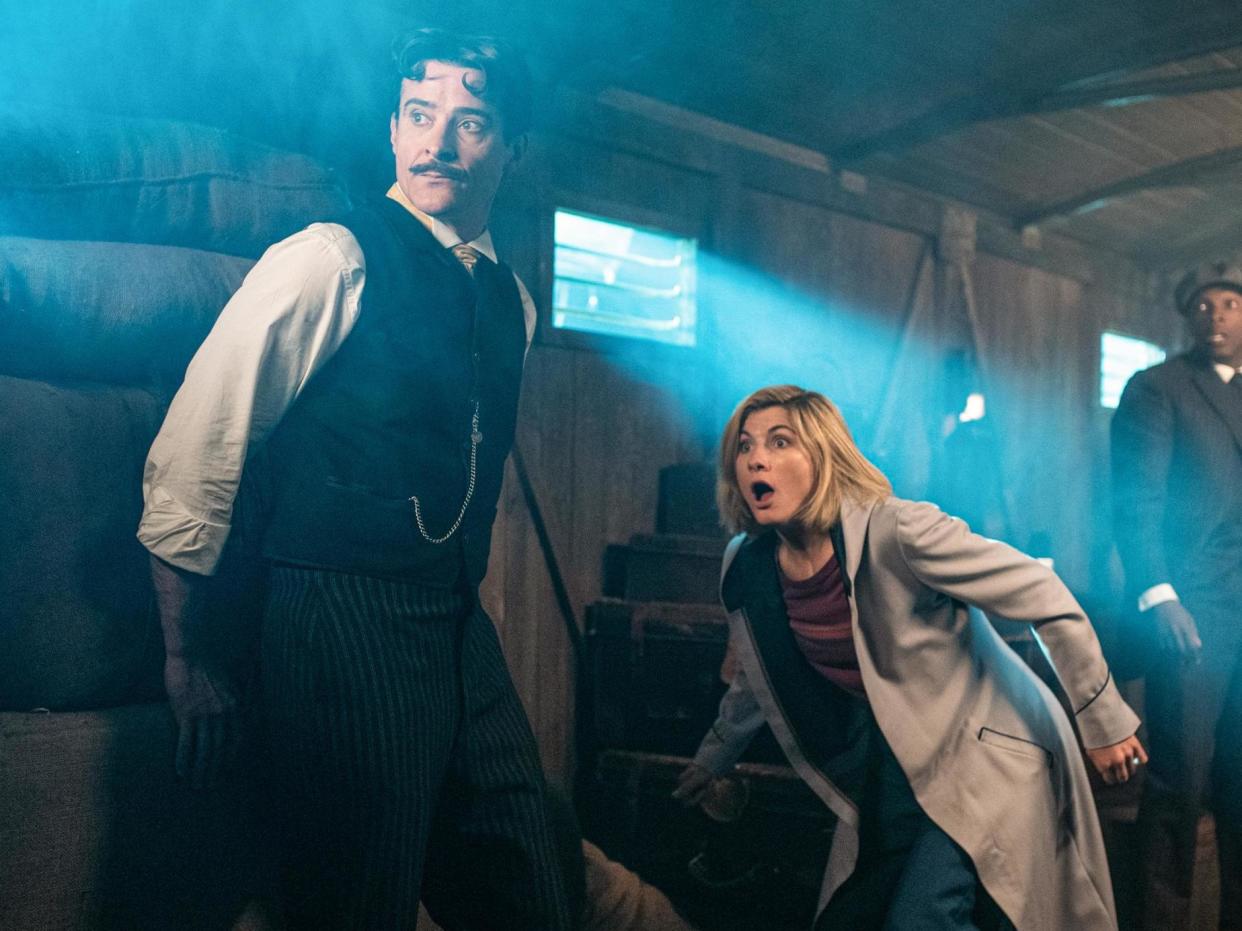Doctor Who review – Nikola Tesla’s Night of Terror: A lot of fun, but unlikely to beat Dancing on Ice in the ratings war

These are testing times at the Tardis. Doctor Who ratings are plunging earthward as Dancing On Ice sucks viewers into its celebrity tractor beam and winter Love Island hoovers up all the media attention. Imagine saving the world on numerous occasions, across many time periods and in a variety of interesting costumes, only to be overshadowed by grinning Speedobots from planet Permatan IV. It’s enough to properly jam up your sonic screwdriver.
This downward spiral is, alas, unlikely to be reversed by "Nikola Tesla’s Night of Terror". If anything it may deepen Chris Chibnall’s Winter of Discontent. This is another genre mash-up from the new show runner that pays tribute to a comparatively obscure figure from the annals – Gilded Age inventor Tesla – and emphasises human drama over cackling aliens. It’s perfectly lovely. Is it what die-hard Whovians want, though?
There ARE cackling aliens, it’s true, but ones who unfortunately feel cobbled together from the cut-scenes in a 15-year-old Playstation game. The biggest flub is the insectoid space queen. She looks like a cross between the Borg matriarch from Star Trek: First Contact and a background dancer in an early Prodigy video. As she made her grand entrance, I struggled to focus over the strains of “I got the poison / I got the remedy/ I got the pulsating rhythmical remedy…” rattling around in my skull.
Chibnall and writer Nina Métivier have cobbled together a serviceable hour of Whovians derring-do and the episode will play well to those who appreciate their science fiction garnished with historical tidbits. Having recovered (a bit too quickly perhaps) from last week’s revelation that the Earth is doomed to environmental collapse, the Doctor and the gang have traced an unrelated alien signal back to turn of the century New York.
There they stumble into the feud between the idealistic Tesla (Goran Višnjić) and the slicker, publicity savvy Thomas Edison (Robert Glenister, who portrayed a fresh-faced alien in Peter Davison’s farewell to Doctor Who in 1984). Edison is perceived as the genius, Tesla as a crank. The chitinous extra-terrestrials know better. They attempt to kidnap the eccentric Serb and dragoon him into their ongoing mission of scavenging technology across the galaxy.
It plays out as expected. Aliens are zapped, Tesla and Edison learn to set aside their differences and work together, the Doctor (Jodie Whittaker) obeys her core programming and flaps around speaking 1.5 times too quickly. It’s brisk, breezy fun – a hoot in fact – and if you have enjoyed the season so far, you’ll thrill as Tesla’s real life Wardenclyffe Tower is used to foil the slimy extra-terrestrials (it is pushing it slightly to claim he invented wi-fi, however).
The problem is that Chibnall and Métivier are clearly far more invested in the dynamic between Tesla and Edison – and they with the Doctor – than in the cannibalistic invaders. Tesla is today better known for lending his name to the geeky car company founded by Grimes’ boyfriend and it is admirable that Chibnall and his team should seek to right this grievous injustice. And yet the harsh truth is that a heartfelt homage to a pioneering electric engineer is unlikely to give Dancing On Ice a great deal to fret over.


